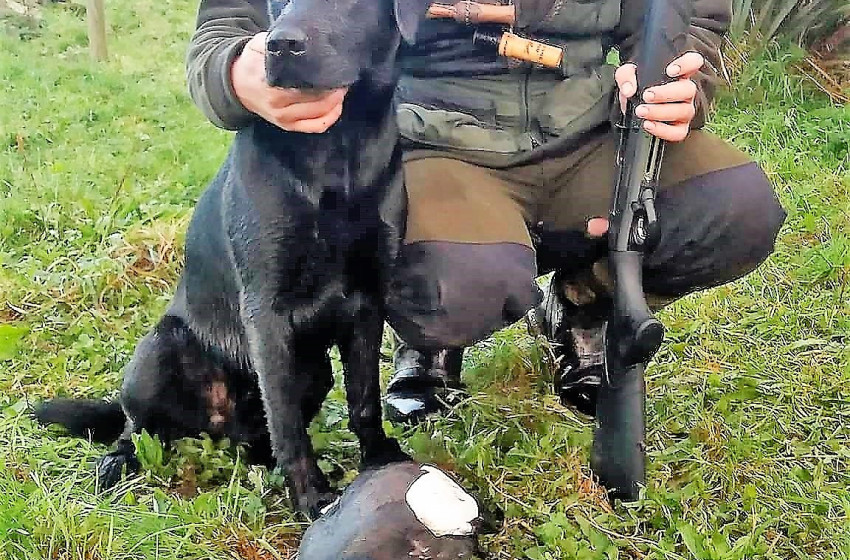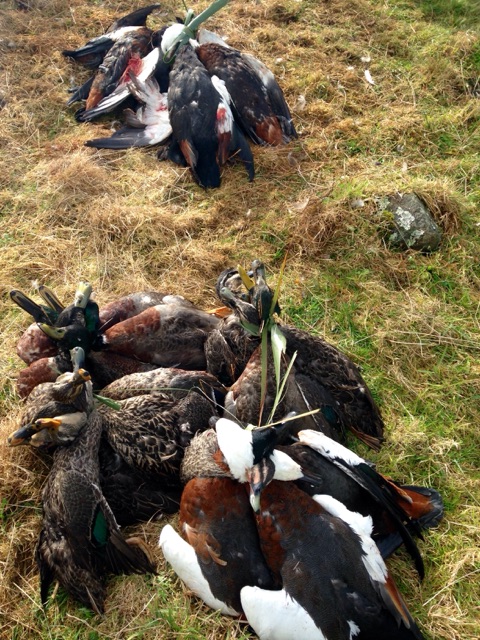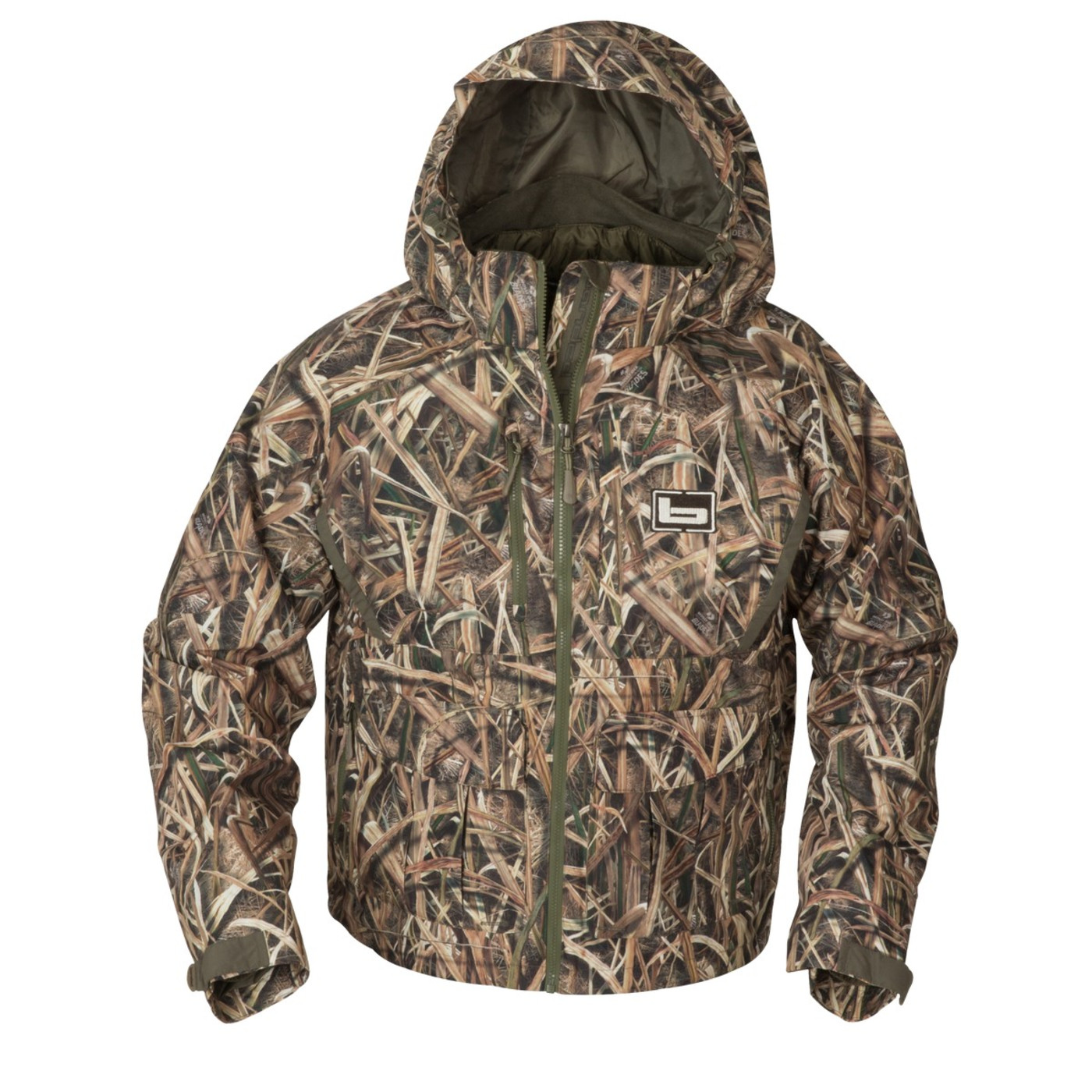Taranaki Both Barrels June 2018
- Taranaki
- 28/06/2018

Forget the mallards, go for pooks & pheasants
Overall, it’s been an average season for ducks, with hunters reporting more mallards than in recent years but fewer paradise shelduck.
Some good bags were taken on Opening Weekend, but hunters shooting their “home ponds” noted a steady decline in success as the season progressed ( It ended on Sunday, July 1).
Right: Troy Grigg with Charlie (Photo Sophie Grigg)
At this time of the year when it’s wet and cold, the mallard and grey ducks chase high energy protein foods such as worms that are exposed in wet and muddy paddocks.
Evening shoots over temporary water or muddy corners have produced some nice fat mallards for the table, but not always in big numbers simply because the birds have had plenty of choice in where to go, and have been well spread out.

The results of a successful hunt.
Hunt upland game birds into August
Pukeko can be hunted in Taranaki through until Sunday August 26, with a daily bag limit of 10 in Area C, and five in Areas A & B.
A pook can be a wily bird that provides challenging shooting as they break from cover, and the best way to hunt them is to get a few dogs and hunting mates together for a pukeko drive.
Their breast meat makes good eating, so please make good use of the birds you shoot.
Cock pheasant and California quail can also be hunted in Taranaki through to August 26.
Although quail populations are now very limited as a result of the loss of rough cover, hunters are reporting good success chasing pheasants in both Nukumaru and Harakeke forests.
Not surprisingly, the obvious areas have received a lot of pressure and it’s worth looking for some tucked away corners that may have been overlooked.
Concentrate on sunny corners with open areas of lupin, ink weed and patches of grasses.
In this country, not every bird provides a shooting opportunity, however if a bird beats you once it will often use the same escape route next time, which with a bit of planning can lead to its undoing.
Hunters are reminded that they need an access permit available from the Whanganui and New Plymouth Fish & Game offices to enter the Nukumaru and Harakeke forest areas.
Similarly, once hunters get back into the less intensively farmed country with more scrub and rough fringe cover, then particularly along river flats and stream margins, there can be reasonable numbers of pheasants in the Taranaki region.
This tends to be an underutilised opportunity, and a good ploy can be to drive back country roads in the early morning or late evening at any time of year looking for obvious concentrations of birds. Then go and knock on the nearest door to find the landowner and possible permission to hunt.
Reminder on duck band details!
Please remember to send in duck band information. If you've successfully harvested a duck with a band on its leg, we need your help.
This information is crucial to our research – so please provide as much detail as possible. This is for our records only.
You can fill out an on-line form via the link here below and submit it, or post your band details (not the band) to: Fish & Game, Private Bag 3010, Rotorua 3046.
Or to the National Banding Office, PO Box 108, Wellington 6140, or ring the free phone number 0800 BIRD BAND (0800-247322).

All band returns go into a draw for a top quality duck hunting jacket (right) plus a six-pack of state of the art decoys generously donated by Hunting & Fishing in conjunction with the U.S. waterfowling company Banded Holdings Ltd.
Click here for details.
Don’t forget to Check Clean & Dry
With “lake snow” (Lindavia intermedia) now confirmed in lakes Taupo, Waikaremoana, Moawhango and Rotoaira, hunters and anglers using boats on central North Island lakes need to check, clean and dry their equipment, particularly boats, motors and trailers.
Spraying gear with a 5% solution of dishwashing detergent or nappy cleaner, or a 2% bleach solution will do the trick.
There is currently no known way of removing Lindavia intermedia once it’s established in a lake or waterway.
Lake snow can produce mucus-like strands of slime which hang and drift under the water, sticking to fishing gear, boat hulls, swimmers, and can clog boat, industrial and domestic water supply filters.
To find out more on how to protect our waterways, visit www.mpi.govt.nz/check-clean-dry